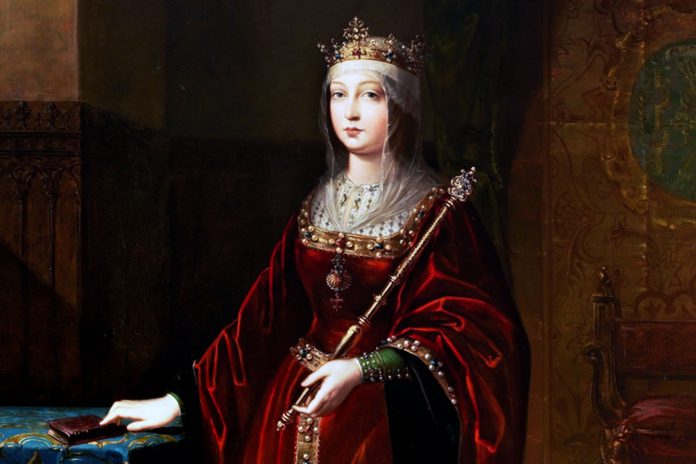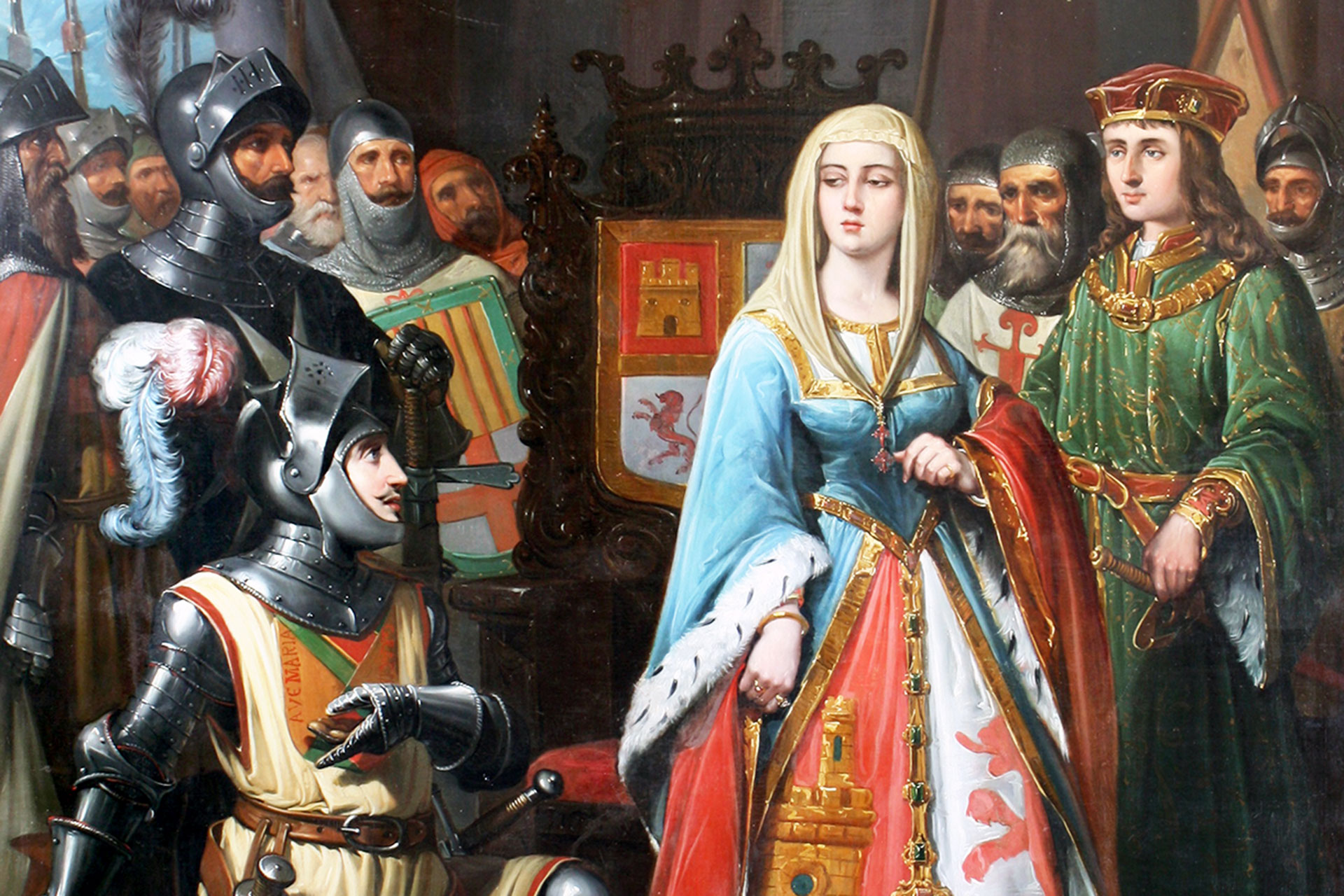
Hidden among forests and bogs in the middle of the Central Russian plains, a tiny women’s monastery dedicated to the Iveron Icon of the Mother of God was about to celebrate its patronal feast.
Everyone in the community—the dozen nuns, Mother Olga at their head, and Grandpa Anatoly, the monastery’s stable hands, carpenter and gatekeeper—were preparing for this important date very seriously.
A month before the day of festivities, Mother Olga sent out invitations to all the monastery’s benefactors. These were people who had, in one capacity or another, helped the monastery, tucked far away from civilization, survive in immensely difficult conditions. Of course, invitations were sent to the abbesses of all the local women’s monasteries.
When inviting guests to the feast day, she could have easily just sent text messages. In this particular case, however, text messages weren’t appropriate. In the end, what is a text message? It is not something you can hold in your hands. It pales in comparison to an envelope with an enclosed card and a formally written invitation with the date and the location of the event. It is an expression of the sender’s hope that the addressee will show respect and pay homage to a tiny monastery by taking part in the services in the small, cozy church and stay for a festive dinner following the service.
Well in advance, three days before the arrival of a local bishop and numerous guests, a few women arrived at the monastery to assist the nuns. They carried out the same duties as the nuns (who were mostly elderly). They took care of the monastery grounds, cleaned up the church, cooked and set the table.
When the special day arrived, everyone including the nuns and the volunteers, welcomed the guests. It was rare to see so many people gathered in the church. Typically, there were about five or six residents of the nearest village at a Sunday service, with a few dozen coming for Pascha or the Nativity services. Anytime there was someone at a weekly service, they were visitors from afar.
“Isn’t it great!” Matushka Olga would say.
All those she wanted to see at the monastery’s feast rose to her call and arrived for the service. Everyone came but Matushka Olympia, the abbess of a large monastery located up on a hill in a local town, visually looming and dominating over the area. It is an ancient monastery, built hundreds of years ago. The town was fused out of nearby residents who chose to live close to the monastery. Before the throngs of tourists even step out of the buses, the tour guides flood them with information about the history of the monastery and the saints with their glorious names, familiar even to those who typically avoid going to church.
Not only does a federal highway cut the town into two parts and pass right by the monastery, but thanks to anniversary celebrations of great local saints, the monastery received major governmental funding for the restoration of its churches and its ancient walls.
“Well,” Matushka Olga thought to herself, “that’s where the tourists pour in. Why would they come to visit us? What could they see? That monastery is ancient, it’s got history. Matushka Olympia can do things at a completely different level, and we’ve got nothing. That’s why she has a lot of sisters, and even her car is better than ours…
“She didn’t come. But why would she? Really! Our priest is old. Thank God, he’s got a pension. We wouldn’t be able to support a young priest. What if he had a big family?” Matushka Olga squirmed just thinking of it. “Up there, they’ve got quite a few clergy, even a deacon. Their service is the real deal. Of course, it’s worth going to see and they have plenty to show. That’s why they always have people. We can’t even come close to them.
We can only serve a no-frills dinner. Whatever we grow in our gardens is what we offer to our guests. We are grateful to the volunteers who come and help us with canning during harvest time. A local fishmonger’s shop owner donated her choicest fish for the patronal feast. May God grant her health, she is always willing to help us! At least, it’s not too embarrassing to have the guests over. Mother Olympia’s table is so richly laid for the patronal feast that we can’t keep up with her. That’s why she didn’t come. Why would she?”
The nagging thoughts about the abbess of a major urban monastery who hadn’t shown up kept circling around in her mind like flies, never allowing her to concentrate on prayer.
“What’s wrong with me?” Mother Olga though, catching herself and outraged at her thoughts. “Leave me alone!”
When these thoughts would retreat for a moment, Mother Olga would calm down and make the sign of the cross after the petitions proclaimed by the protodeacons. She’d bow, and then, in fright realize that she had started judging again.
She decided to approach the Chalice last. She stepped forward in tears, chastising herself for doing nothing but envying Matushka Olympia throughout the service on such a significant and festive day in the life of their small, tight-knit community. She envied and judged her.
When she came to the Chalice, getting ready to accept the Body and Blood of Christ, she crossed her hands and said with feeling:
“The most unworthy, the most sinful, and envious Abbess... Olympia.”
She opened her mouth to receive Holy Communion, and only then realized what she had just said. As it sank in, she stood there with her mouth open.
Vladyka stopped his hand just as he was about to administer Communion to Mother Olga, smiled, and quietly asked:
“So, Olympia, you say? I am sure she is a sinner, though I am not her spiritual father. Unworthy and envious? Well, who am I to judge? Olga, think about yourself. More importantly, remember your first love.”
And said no more. He gave her Communion, turned around and walked back into the altar.
Afterwards, there was the cross procession, followed by congratulations. The nuns offered a present to Vladyka, and he offered one for the monastery in turn. The guests crowded around Mother Olga with greetings, gifts and kind wishes. The bad thoughts that tormented her during the Liturgy receded after she had communed. She joined everyone at the table, taking delight in their festive gathering.
Having seen Vladyka off and said her goodbyes to guests, Mother Olga cleaned tables as she mentally processed the events of the day. She pondered about the time when she approached the Chalice. It was as if she had been burned by Vladyka’s words, “Olga, remember your first love.”
What did he mean by “first love?” Olga had been tonsured soon after she graduated from university. During her studies, she had shied away from the usual student gatherings and spent weekends at church. She remembered how she joined fellow parishioners on her first trip to a women’s monastery, and how much she enjoyed it. Having visited it once, the abbess-to-be made a custom of going to that monastery during summer breaks and felt at ease while she was there. She truly felt comfortable in that place. So it’s no wonder that when she was in her final year at the university, she couldn’t imagine herself anywhere else other than in a monastery. Olga was tonsured by the same bishop who had come to their monastery’s patronal feast. Even during the tonsure ceremony, she caught his attention, so he spent a bit of time talking to her and left the monastery feeling quite content.
It should be noted that Vladyka had set a course to open monasteries in his diocese from the very beginning. He revived ones that had once existed, whereas others appeared in places where no monastery had been before. What’s interesting is that there wasn’t any particular plan in place. Nothing at all. The situation simply called for the restoration of monastic life.
Someone recalled how, a long time ago, there was a group of sisters of mercy who resided near this particular village out on the plains. Soon, their group formed a sisterhood that lived according to a monastic rule. It was granted monastery status only during the reign of the last tsar.
Perhaps no one would ever have remembered this story had it not been for the local villagers, or their descendants who lived next to the old monastery, who visited the services, prayed and labored together with the sisters. As it happens, the ancient Iveron icon of the Mother of God was the most sacred in the monastery. It was much older than the monastery itself and neither the monastics nor the parishioners doubted that it was a wonder-working icon.
After the revolution, the new authorities cracked down on the nuns so quickly that none of them had time to think that their holy icon was in grave danger. Armed soldiers invaded the village unannounced, and led the monastics away the same day, loading them in empty carts and taking them to the nearby town. Not one of them ever returned.
When the soldiers left, the villagers entered the church. Understanding that the nuns would never return, they took the remaining icons to their homes for safe-keeping.
Over eighty years had passed when the grandchildren of those peasants came to the nearby city and handed over the wonder-working Iveron icon they had kept safe to the bishop. “Here,” they said. “Your Grace, we did what we had to and saved the icon. Now it’s your turn to decide what to do next.”
The bishop visited that village. He was shown the area where the monastery had previously stood. Nothing was left, not even the foundation could be seen. But the icon had returned. It meant that the Mother of God gave Her blessing, or else it wouldn’t have appeared here.
In order to restore a monastery, they needed people, and prayers, in the first place. Who could he send to bear the heavy cross of building this monastery from the ground up, in the middle of a field? Who would agree to unreservedly lay down their lives here?
That’s when his thought turned to the young nun Olga. He remembered her jubilant gaze after her tonsure, and her ardent desire to serve God.
“She can handle it,” Vladyka thought, “For she loves God.”
Initially, he wanted to invite her to the diocesan office, but then thought it better to go visit her at the monastery.
Vladyka explained the situation to the young nun.
“You’ve got energy and faith. You can do it.”
“Vladyka, at least tell me where the former monastery was located.”
The bishop pointed to a place on the map and handed her a decree appointing her abbess of the non-existent monastery.
“Vladyka,” whispered the young nun. “Is there anyone who could help me?”
“Yes, there is,” the bishop nodded. “The Lord and the Most Holy Mother of God.”
Day after day, she spent countless hours in the reception areas of big bosses in Moscow. She talked to people of power and influence. Some of them would readily jot down her phone number, others promised to give it a thought. In the end, no one offered any real help. She spent weeks in Moscow, staying wherever she could. There were times that she had to spend the night at the railway station.
Once, she went to attend a Sunday liturgy at the Church of “The Joy of All Who Sorrow” Icon of the Mother of God. She knew the church well from her years as a student and would often come to venerate this wonder-working icon of the Most Holy Mother of God. That morning, she came to church earlier than usual, before the faithful had arrived for the service. She got down on her knees and prayed to the Most Holy One for help:
“Matushka, I beg you, help me in my sorrow, I need your help. Help me to restore the monastery founded in honor of your holy name. Send those who can help and those who could join me in prayer. I refuse to believe that your Iveron Icon was revealed to us for no reason. Surely, we have your blessing to restore the holy monastery. I cannot do it on my own. I knock at the door and ask, but nothing works. Help me!”
Mother Olga prayed, assuming her prayer was hidden from those around her. She prayed and didn’t notice that she was doing so at the top of her voice, all but crying aloud. At a certain point, she felt someone fall to their knees beside her. She didn’t care if it was a man or a woman, but she felt that she was no longer alone. The feeling was so clear, so she took her eyes off of the icon and, through her tears, looked at the person next to her.
She couldn’t tell if it was a man or a woman, but she saw the other person’s eyes filled with tears, and heard, “You need me and I need you. I will help you. Be it construction materials or money, I can help. But you must help me save my daughter. She is a drug addict, nearly done for. You and your monastery, pray for my daughter.”
“But there is no monastery, there’s absolutely no one but me! Just you and me!”
“Well, then it will be just you and me. We will start building it and praying.”
And that’s how the restoration of the monastery of the Iveron Icon of the Mother of God began: two women who found each other, and a girl with a drug problem.
Time went by. First, they built a solid home with a house church and monastic cells from scratch. Next was a small, new church (a small one was all they needed), which served as a home for the old icon of the Most Holy Mother of God that brought together the ascetics of today with the long-suffering nuns of old.
The woman that Matushka Olga had met many years ago in a Moscow church, in front of the wonder-working icon, found eternal rest next to the monastery church she had helped build at her own expense. Her daughter grew up, got a degree and then got married. Now she is a mother of two darling daughters and happily married. She and her family often visit the monastery and leave the capital during the summer break to come and work, helping the nuns gather hay for their goats.
Olga remembered those times, both challenging and wonderful, as well as the true Christian love that governed the lives of a handful of enthusiasts at the root of the monastery’s restoration.
“Now think of that,” Matushka Olga said to herself with a start. “Some of our dearest friends weren’t at the feast. No one thought of sending them an invitation! True friends like them come even without a formal reminder.”
Alarmed, she hastily dialed their number and heard a familiar voice at the other end, “Dear Matushka, happy feast day! I am sorry we couldn’t come. The girls got sick. We decided not to call you, I know you’ve got plenty of things to worry about. As soon they get better, we will come to our monastery. We miss you!”
“Come as soon as you can! We are one family and I really miss you, especially today.”
She sighed and added, “You know, it turns out that it’s really important to remember your first lo




